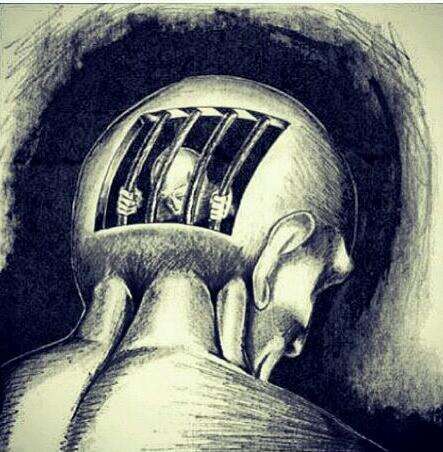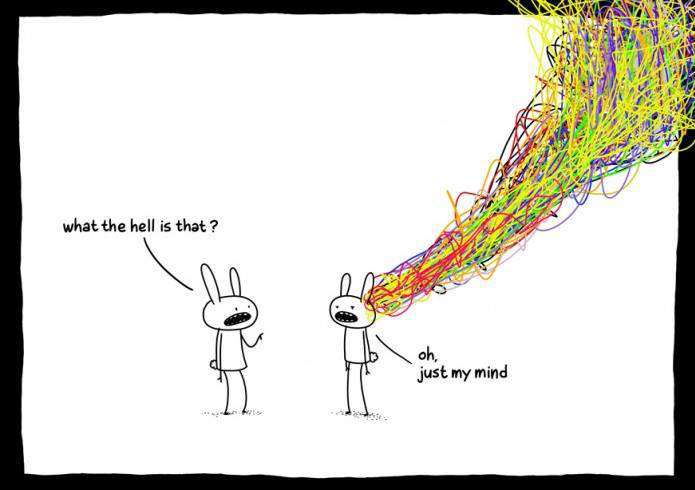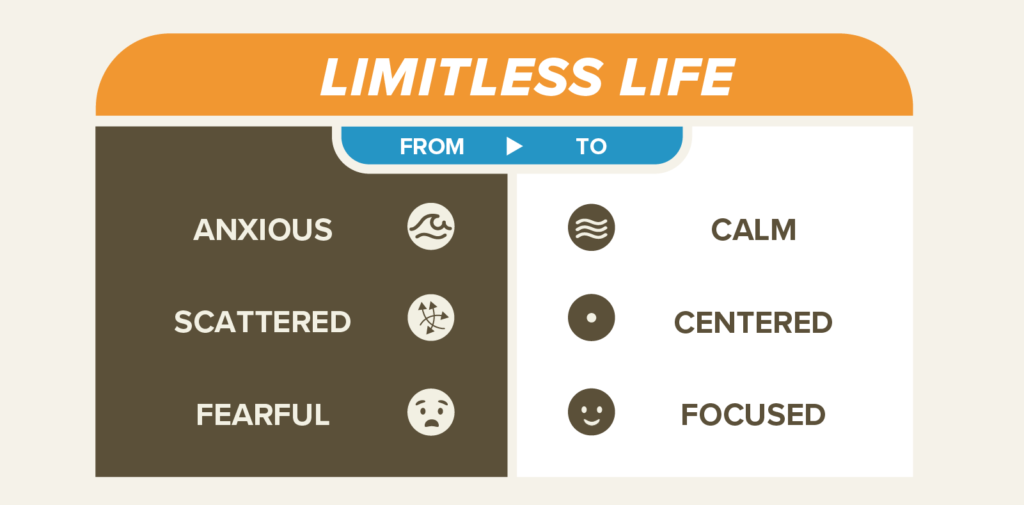Do you find yourself constantly worrying about things that may or may not happen? Do you feel like your mind is consumed by fearful thoughts that prevent you from enjoying your daily life? Fearful thinking can be overwhelming and can have a significant impact on your mental health. However, there are strategies you can use to stop this pattern of thinking and take control of your thoughts.
Understanding fearful thinking is the first step to overcoming it. Fearful thinking is a pattern of negative thoughts that can lead to anxiety, stress, and worry. It can be triggered by a variety of things, such as past experiences, current situations, or even your own imagination. These thoughts can be so powerful that they can affect your behavior and daily life.
Fortunately, there are strategies you can use to stop fearful thinking. These strategies include identifying the causes of your fearful thinking, challenging your negative thoughts, practicing mindfulness, and seeking professional help if needed. By taking control of your thoughts and learning to manage your fears, you can live a happier, more fulfilling life.
Key Takeaways
- Fearful thinking can have a significant impact on your mental, physical, and emotional health and daily life.
- Understanding the causes of your fearful thinking and challenging your negative thoughts are key strategies to stop this pattern of thinking.
- Practicing mindfulness and seeking professional help if needed can also be effective in managing fearful thinking.
Understanding Fearful Thinking

Fearful thinking can be overwhelming and debilitating, but it’s important to understand that you have the power to change your thought patterns. By recognizing negative thoughts and understanding the impact of fearful thinking, you can take steps to reduce anxiety and move towards a more positive mindset.
Identifying Negative Thoughts
The first step in stopping fearful thinking is to identify negative thoughts. These can be thoughts that focus on worst-case scenarios, obsessive thoughts, and fears that are often irrational. Negative thoughts can also lead to feelings of shame and guilt, which can further exacerbate anxiety.
To identify negative thoughts, try keeping a journal of your thoughts and feelings. When you notice yourself feeling anxious or fearful, write down the thoughts that are going through your mind. Look for patterns in your thinking and try to identify any triggers that may be causing negative thoughts.
Recognizing Anxiety Disorders

Fearful thinking can be a symptom of anxiety disorders such as panic disorder, post-traumatic stress disorder, social phobia, and generalized anxiety disorder. It’s important to recognize the signs of these disorders so that you can seek appropriate treatment.
Common symptoms of anxiety disorders include panic attacks, obsessive thoughts, and compulsions. If you are experiencing any of these symptoms, it’s important to talk to a healthcare professional who can help you develop a treatment plan.
Understanding the Impact of Fearful Thinking
Fearful thinking can have a significant impact on your mental and physical health. It can lead to depression, panic attacks, and other physical symptoms such as headaches and muscle tension.
By understanding the impact of fearful thinking, you can begin to take steps to reduce anxiety and improve your overall well-being. This may involve cognitive-behavioral therapy, mindfulness practices, or other techniques that help you to reframe negative thoughts and develop a more positive mindset.
Remember, you have the power to change your thought patterns and reduce anxiety. By identifying negative thoughts, recognizing anxiety disorders, and understanding the impact of fearful thinking, you can take steps toward a happier and healthier life.
Causes of Fearful Thinking
Role of Stress
Stress can be a major cause of fearful thinking. When you are under stress, your mind becomes preoccupied with negative thoughts and worries. This can lead to a vicious cycle of fearful thinking, where your fears and worries become more intense and persistent. Stress can also affect your physical health, making you more vulnerable to anxiety and other mental health disorders.
Influence of Trauma
Experiencing trauma can have a lasting impact on your mental health. Trauma can lead to fearful thinking by creating a sense of danger and vulnerability. Trauma can also trigger anxiety and other mental health disorders, making it difficult to control your thoughts and emotions.
Impact of Mental Health Disorders

Mental health disorders such as anxiety disorder, depression, panic disorder, post-traumatic stress disorder, and generalized anxiety disorder can all contribute to fearful thinking. These disorders can cause your mind to become preoccupied with negative thoughts and worries, making it difficult to focus on anything else. They can also cause physical symptoms such as rapid heartbeat, sweating, and trembling, which can intensify your fears and worries.
In conclusion, stress, trauma, and mental health disorders can all contribute to fearful thinking. By understanding the causes of fearful thinking, you can take steps to manage your fears and worries and improve your mental health.
Effects on Daily Life
Fearful thinking can have a significant impact on your daily life. It can affect your sleep, social interactions, and work performance and relationships.
Impact on Sleep
When you are constantly worrying and fearful, it can be difficult to fall asleep and stay asleep. You may find yourself tossing and turning, unable to shut off your thoughts. Lack of sleep can lead to fatigue, irritability, and difficulty concentrating during the day.
To improve your sleep, it is important to establish a regular sleep routine. Try to go to bed and wake up at the same time each day, even on weekends. Avoid caffeine and alcohol before bedtime, and create a relaxing sleep environment by keeping your bedroom cool, dark, and quiet.
Effect on Social Interactions
Fearful thinking can also impact your social interactions. You may feel anxious and uncomfortable in social situations, leading you to avoid them altogether. This can lead to feelings of isolation and loneliness.
To overcome social anxiety, it is important to face your fears and practice social skills. Start by attending small social gatherings and gradually work your way up to larger events. Remember that everyone feels nervous in social situations at times, and it is okay to make mistakes.
Influence on Work Performance
Fearful thinking can also affect your work performance. It can lead to procrastination, difficulty making decisions, and decreased productivity. You may find yourself worrying about making mistakes or being judged by others.
To improve your work performance, it is important to break tasks down into smaller, manageable steps. Set realistic goals and deadlines, and prioritize your tasks. Practice positive self-talk and challenge negative thoughts that may be holding you back.
In conclusion, fearful thinking can have a significant impact on your daily life. By addressing the effects on sleep, social interactions, and work performance, you can take steps to overcome your fears and improve your quality of life.
Strategies to Stop Fearful Thinking

Mindfulness and Meditation
Mindfulness and meditation are powerful tools to help you stop fearful thinking. They help you to stay present in the moment and focus on your thoughts and feelings without judgment. Mindfulness and meditation can reduce stress and anxiety, which are common triggers for fearful thinking.
To practice mindfulness, find a quiet place where you can sit comfortably and focus on your breath. Pay attention to your thoughts and feelings without judgment. If your mind starts to wander, gently bring your attention back to your breath.
Meditation can be done in a similar way but with a specific focus or intention. You can use guided meditations or simply sit in silence and focus on a word or phrase. Meditation can help you to develop a sense of calm and inner peace, which can reduce the frequency and intensity of fearful thoughts.
Cognitive Behavioral Techniques
Cognitive behavioral techniques are another effective way to stop fearful thinking. These techniques focus on identifying and changing negative thought patterns that contribute to anxiety and fear. By changing your thoughts, you can change your feelings and behavior.
One common technique is called “thought stopping.” When you notice a fearful thought, say “stop” out loud or in your mind. Then, replace the thought with a positive or neutral thought. For example, if you are afraid of flying, you might replace the thought “I’m going to crash” with “I’m safe and in control.”
Another technique is called “reframing.” This involves looking at a situation from a different perspective. Instead of focusing on the negative aspects, try to find the positive or neutral aspects. For example, if you are nervous about a job interview, you might focus on the opportunity to learn and grow, rather than the possibility of failure.
Engaging in Physical Activity
Engaging in physical activity can also help you to stop fearful thinking. Exercise releases endorphins, which are natural mood boosters. It can also reduce stress and anxiety, which can contribute to fearful thinking.
You don’t need to engage in intense exercise to see the benefits. Even a short walk or yoga session can help to clear your mind and reduce anxious thoughts. Find an activity that you enjoy and make it a regular part of your routine.
By practicing mindfulness and meditation, using cognitive behavioral techniques, and engaging in physical activity, you can stop fearful thinking and live a more peaceful and fulfilling life.
Seeking Professional Help
If you find that your fearful thinking is interfering with your daily life, it may be time to seek professional help. A mental health professional, such as a psychologist, can help you identify the root of your fearful thinking and develop strategies to manage it effectively.
Role of Psychologists
Psychologists are trained professionals who specialize in treating mental health conditions. They use evidence-based techniques to help individuals overcome anxiety disorders, depression, panic disorder, post-traumatic stress disorder, and generalized anxiety disorder.
When you work with a psychologist, they will help you identify the underlying causes of your fearful thinking. They will also teach you coping strategies to manage your symptoms, such as cognitive-behavioral therapy (CBT) and exposure therapy. Through therapy, you can learn to challenge negative thoughts and beliefs and develop a more positive outlook on life.
Treatment Options
There are several treatment options available for individuals struggling with fearful thinking. Some of the most common treatments include:
- Cognitive-behavioral therapy (CBT): This type of therapy helps individuals recognize and change negative thought patterns that contribute to their anxiety.
- Exposure therapy: This type of therapy involves gradually exposing individuals to the source of their fear, helping them learn to manage their symptoms.
- Medication: In some cases, medication may be prescribed to help manage symptoms of anxiety and depression.
- Mindfulness practices: Mindfulness practices, such as meditation and deep breathing exercises, can help individuals manage symptoms of anxiety and depression.

Meditation is a powerful tool to switch you from an anxious state to calm. From scattered mindset to centered. Taking your mind from a fearful state to focus. Focusing on the things that matter most to you in life, not the things you have no control over anyways. So why put your mental, physical, and emotional health in a compromised position by being fearful and worrying about what you can’t change; or the fearful thoughts that your imagination has run away with?
In conclusion, seeking professional help from a psychologist can be an effective way to manage fearful thinking. Through therapy, individuals can learn to identify and challenge negative thoughts, develop coping strategies, and improve their overall quality of life.
Conclusion
In conclusion, stopping fearful thinking is not an easy task, but it is possible. You have the power to control your thoughts and emotions, and with practice, you can overcome your fears. By acknowledging your fears, you can begin to work on them and change your perspective. Remember that fear is a natural emotion, and it is okay to feel afraid at times.
It is important to be conscious of your thoughts and not let them spiral out of control. When you notice yourself getting caught up in fearful thinking, take a step back and try to view the situation from a different perspective. This can help you see the situation in a more positive light and reduce your anxiety.
Worrying and stressing about things that are out of your control can be detrimental to your mental and physical health. It is important to focus on the things you can control and let go of the things you cannot. This can help reduce your anxiety and stress levels.
Remember that your perspective plays a huge role in how you view situations and how you react to them. By changing your perspective, you can change your thoughts and emotions. Practice positive self-talk and focus on the good in situations rather than the bad.
In summary, stopping fearful thinking requires practice and patience. Be kind to yourself. By acknowledging your fears, being conscious of your thoughts, and changing your perspective, you can overcome your fears and reduce your anxiety and stress levels.
How Negative Emotions Can Affect Your Health: Understand the Link https://1111newme.com/2023/06/05/how-negative-emotions-affect-your-health-understand-the-link/

